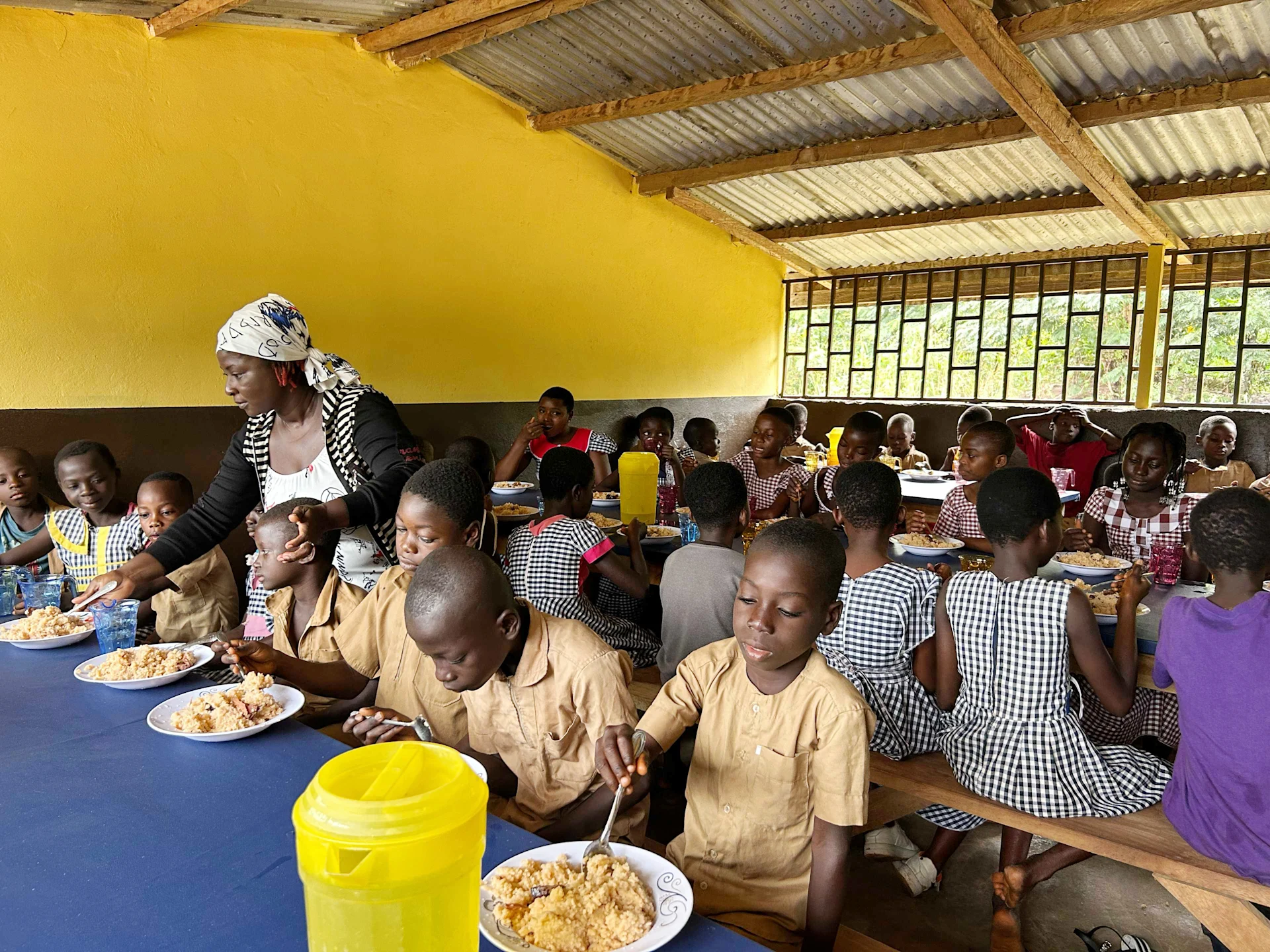
Sustainability
Do something good for CHF 0.50
If you buy a bar of "Côte d'Ivoire" chocolate, you will be contributing to a success story in West Africa.
navigation
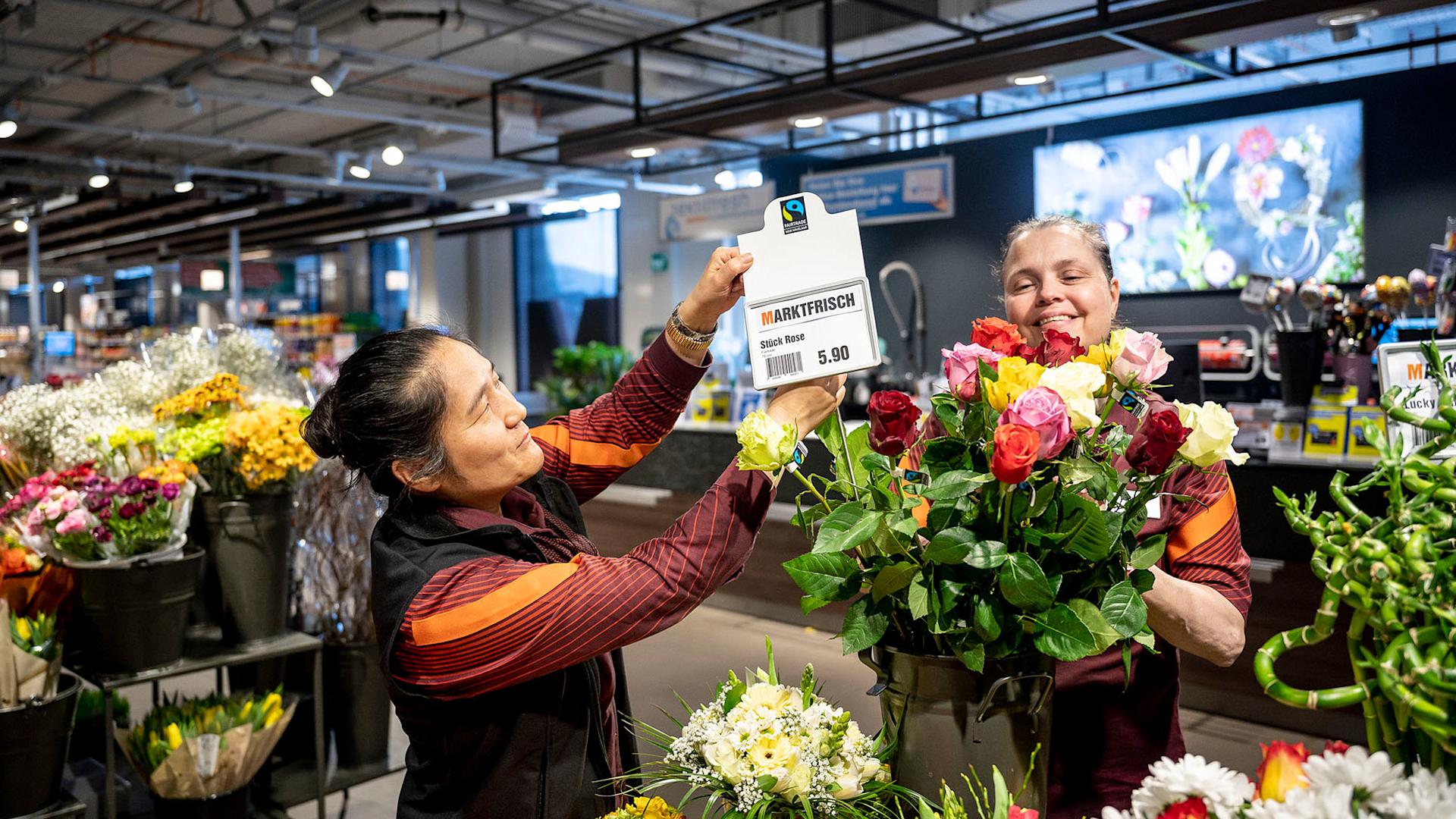
Sustainability
Roses are a classic among cut flowers. However, the selection on offer can make a big social and environmental difference. This is why Migros is committed to fairly grown roses.
Roses need warmth to thrive. which means they cannot be grown outdoors in Europe. They flourish only in heated greenhouses, for example in the Netherlands. However, this cultivation consumes a lot of resources. We therefore rely on roses that are grown in the Global South. Their journey from the field to the vase at home often starts in East Africa (Kenya, Ethiopia, Tanzania, Uganda, Zimbabwe) or South America (Ecuador, El Salvador).
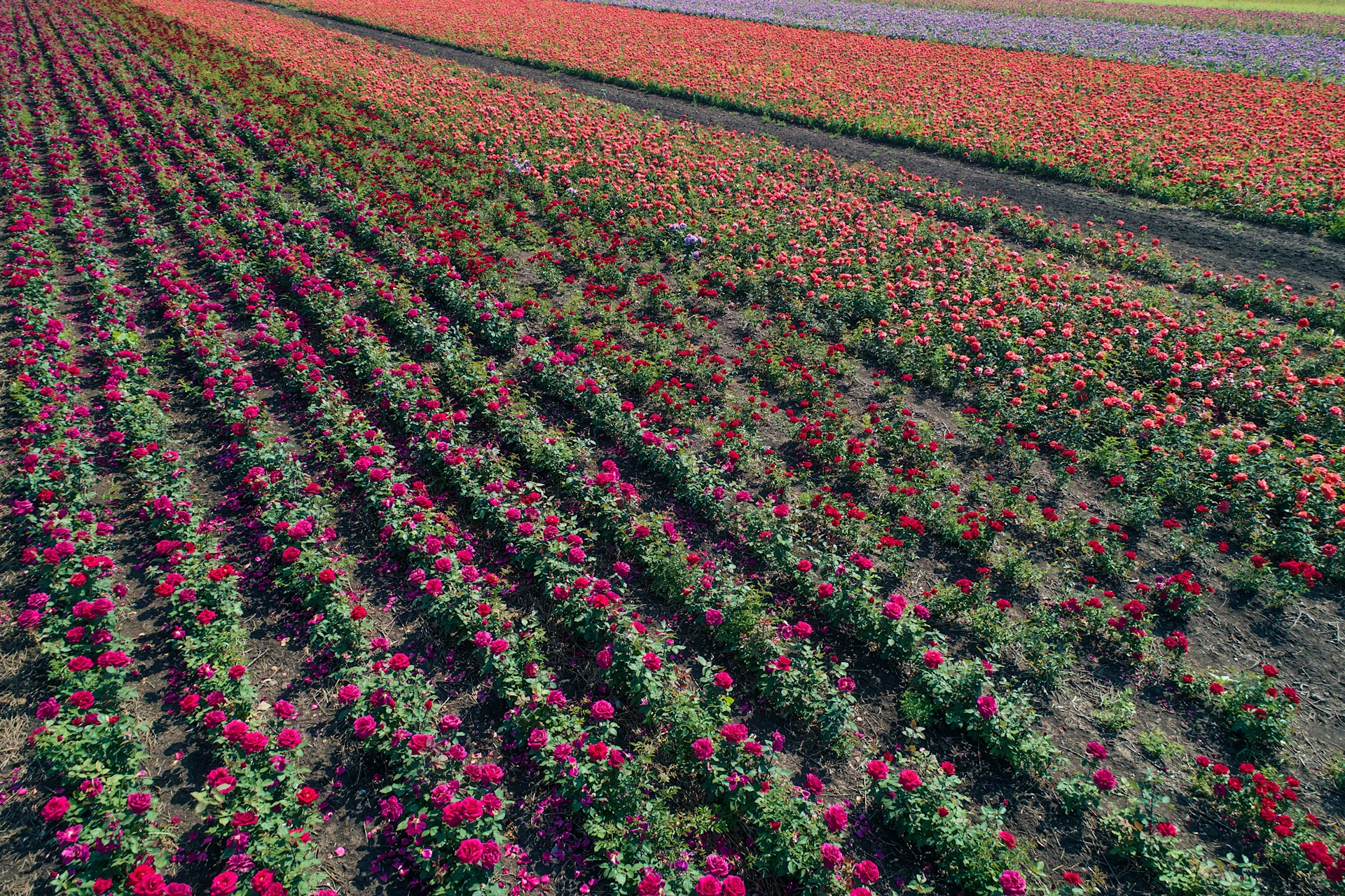
The cultivation of flowers and plants plays an important role for the producing countries, as it is extremely profitable and creates thousands of jobs. This makes it all the more important that we advocate fair cultivation: Migros generates around 70 per cent of its rose sales through roses from Fairtrade farms. The Fairtrade standards for flowers lead to a consistent improvement in the working conditions of farm workers and a responsible approach to the environment.
A study from February 2023 concluded that workers on Fairtrade-certified farms in East Africa receive higher wages and have better working conditions than workers on non-certified farms. The study also contains recommendations on how Fairtrade can continue to work towards better working conditions and environmental sustainability in flower cultivation.
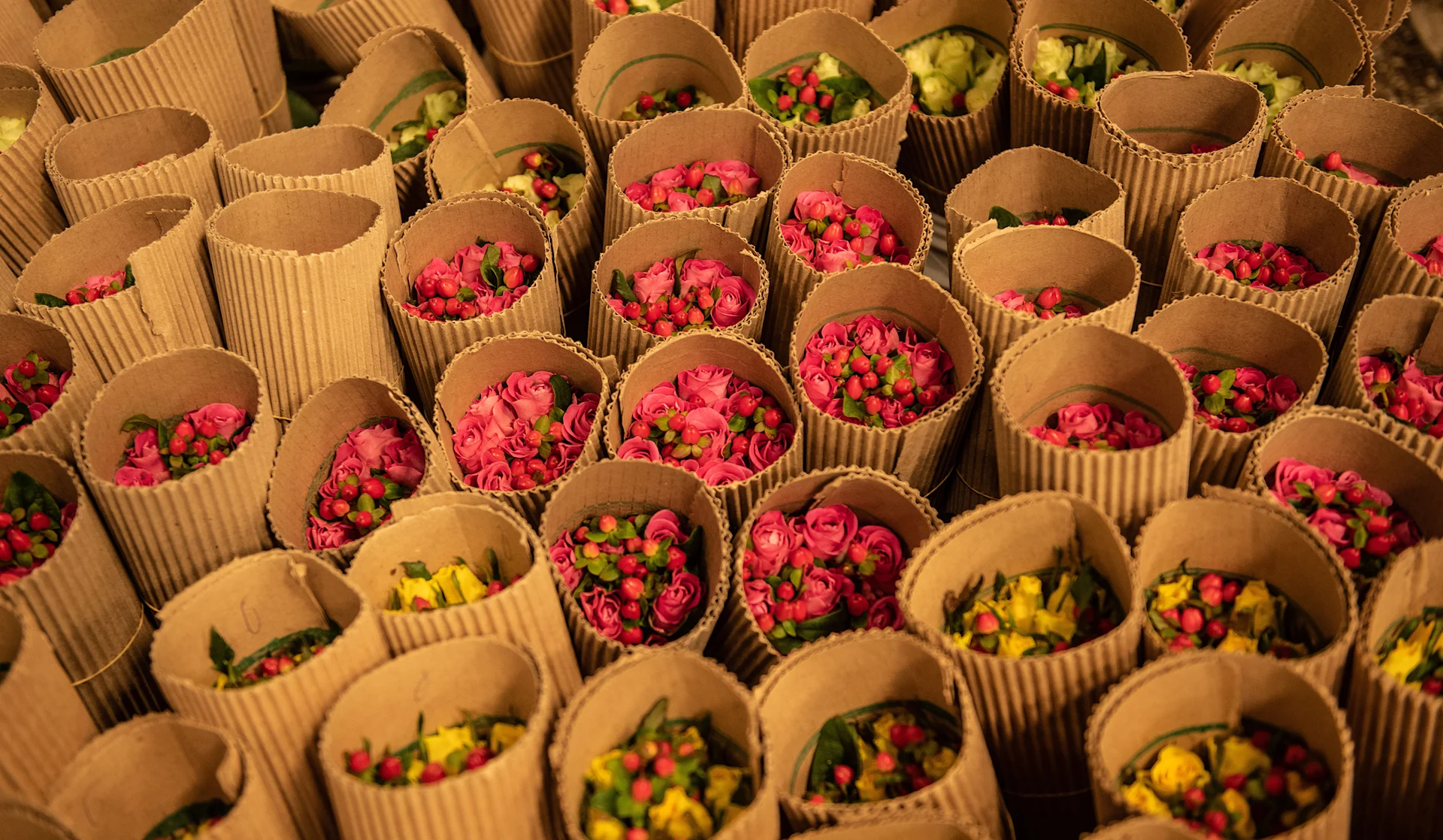
Not all roses offered by Migros feature the Fairtrade label. However, the remaining 30 per cent also comes from responsible production, which means that the farms must meet the minimum requirements of GlobalG.A.P. or an equivalent certification. Among other things, this ensures compliance with basic environmental protection requirements.
Migros also sets conditions with regard to occupational health and safety: we ensure compliance with social requirements via amfori BSCI (Business Social Compliance Initiative) or an equivalent social standard. This improves social conditions such as health and safety in the workplace throughout the supply chain. By the way, Migros was one of the founders of amfori BSCI in 2003.
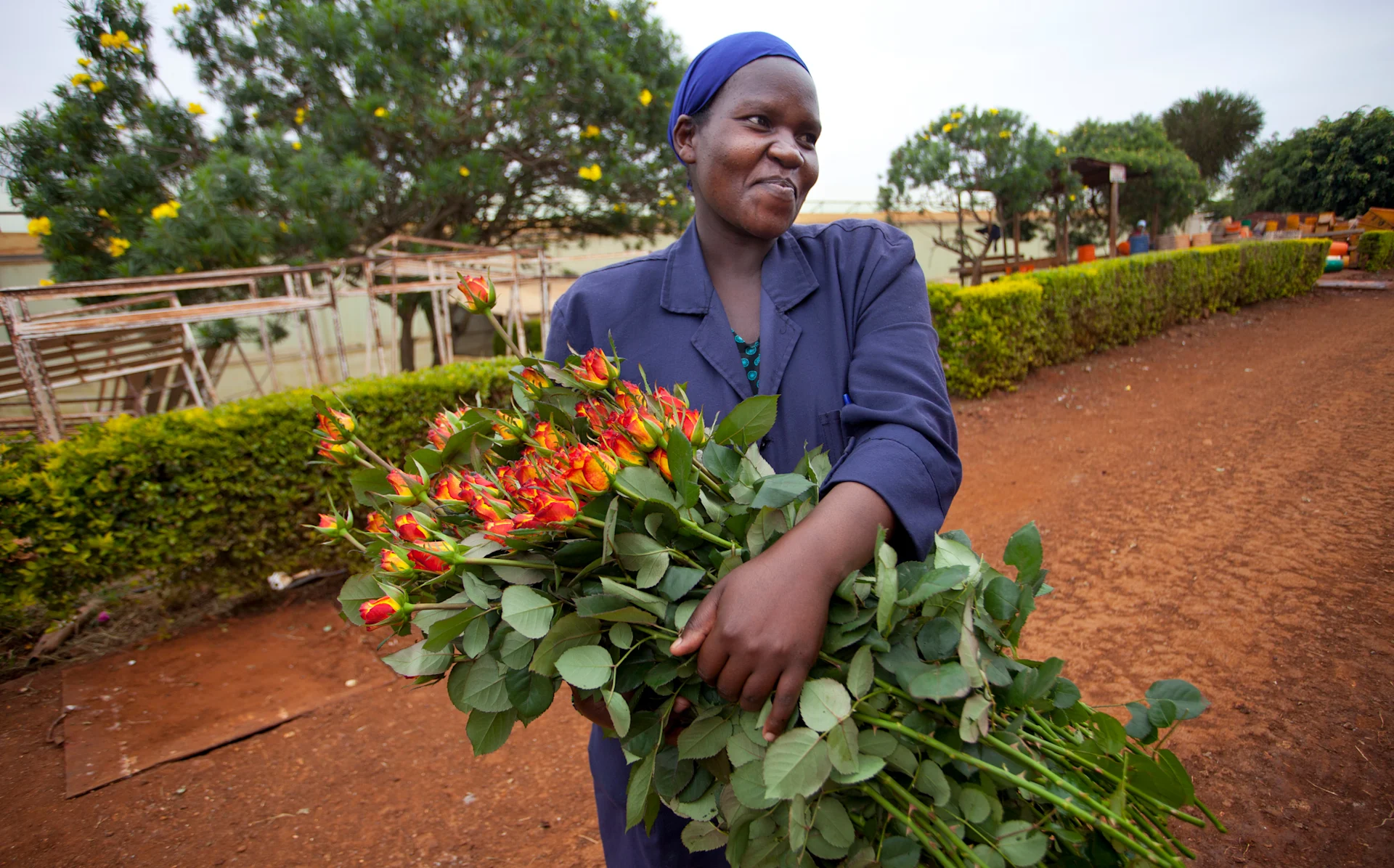
To minimise the negative environmental impact of air transport for imports, Migros makes a voluntary climate contribution to the CO2 emissions from air transport. In cooperation with the myclimate foundation, the money from these climate contributions is used to finance projects in our own supply chain that reduce the negative impacts on the climate.
The Youth Skills Development programme was made possible by one-off start-up funding from Migros working in collaboration with Fairtrade Max Havelaar. The programme, which ran from January 2023 to April 2024, aimed to promote the skills of young people and create better underlying conditions for jobs. To this end, young employees were trained in issues like leadership, financial planning and making a good impression.

The positive effects soon became apparent. The participants became a lot more self-confident. They are now passing on their knowledge to other young people and acting as role models. As a result, many employees are better able to make their earnings last all month. There is also significantly less alcohol abuse at work.
Published on 06.11.2023, revised on 06.02.2026
Sustainability is part of our culture and we still have plenty more on our agenda. Learn more about it in our Stories!